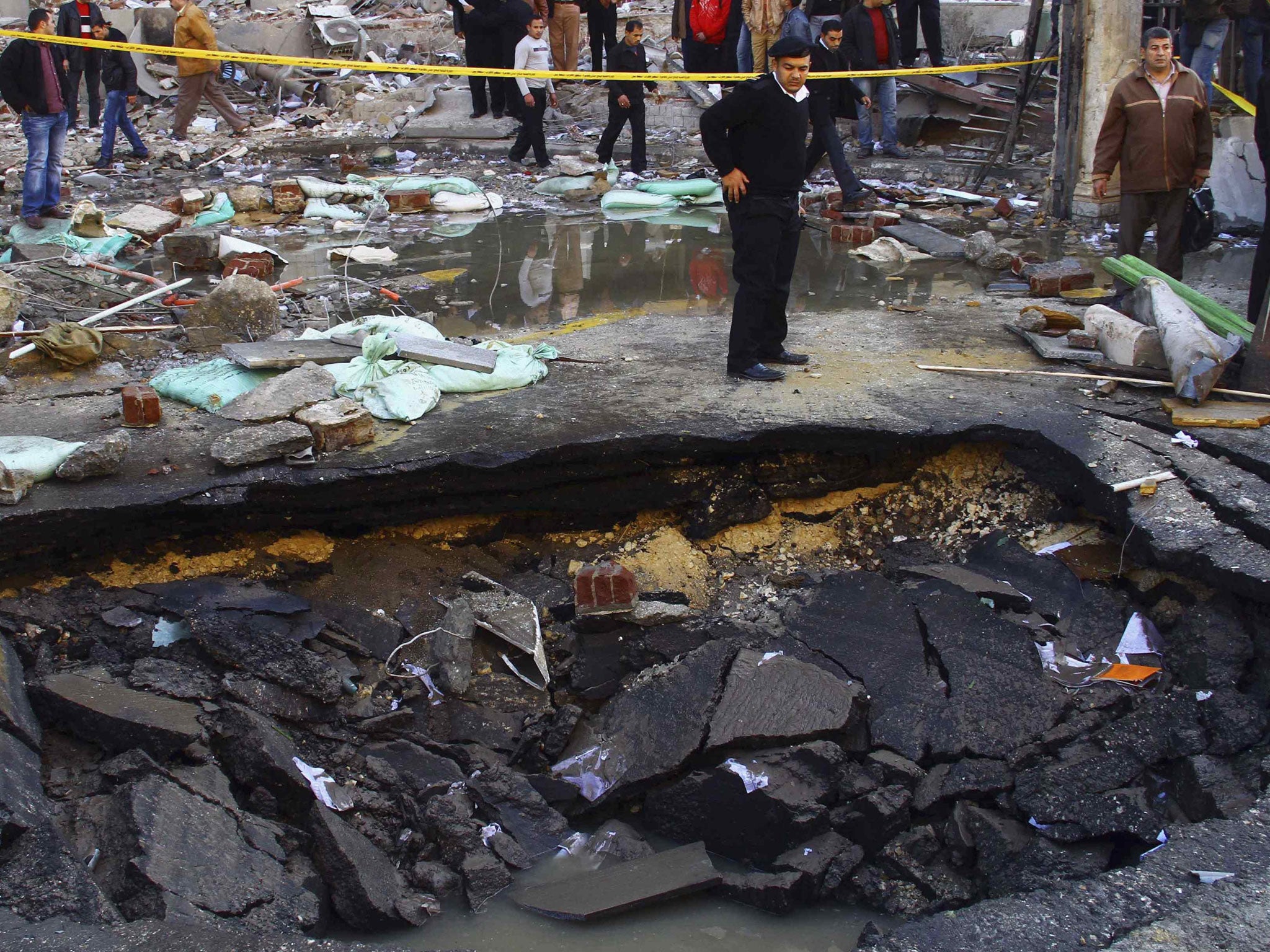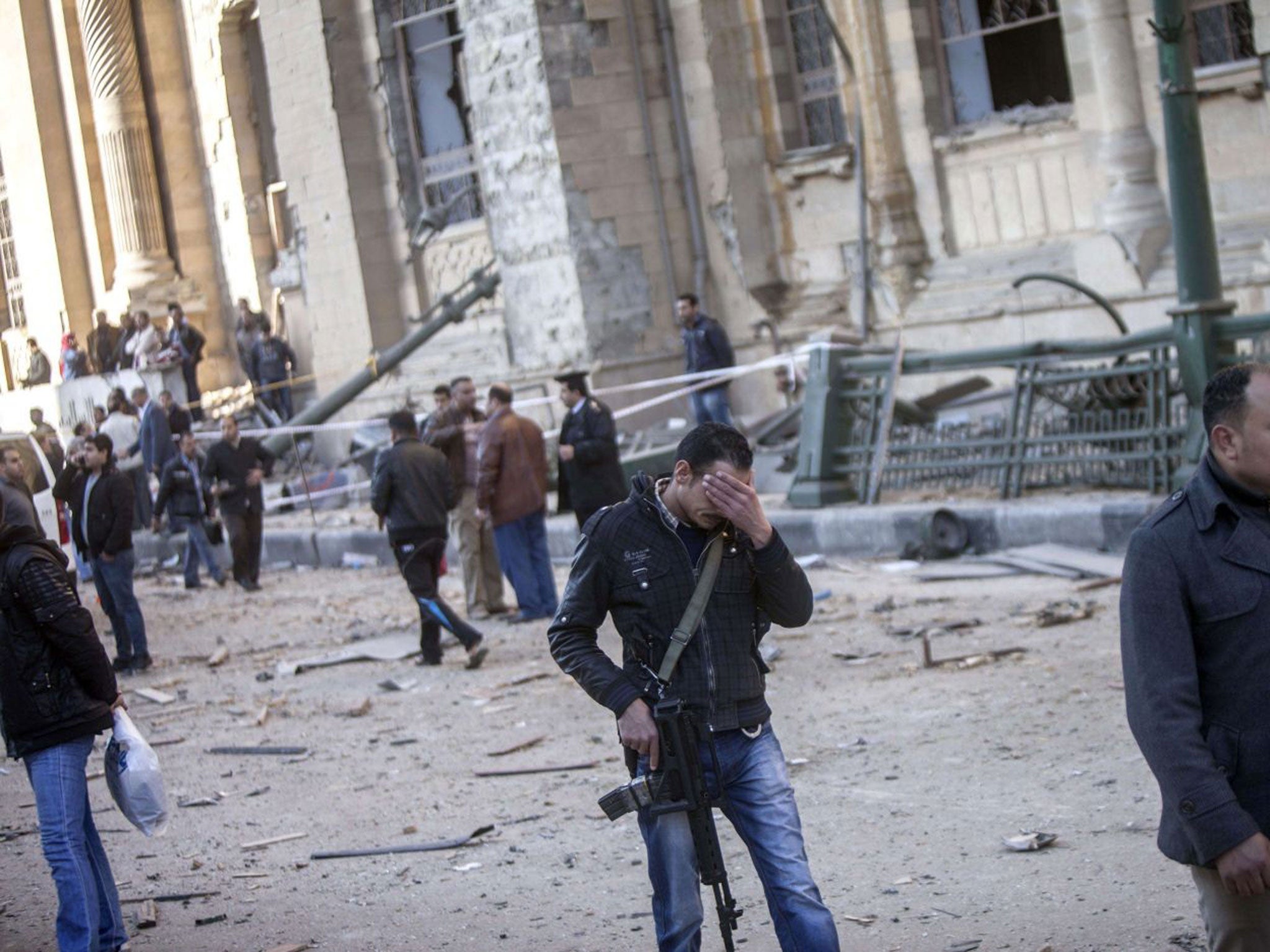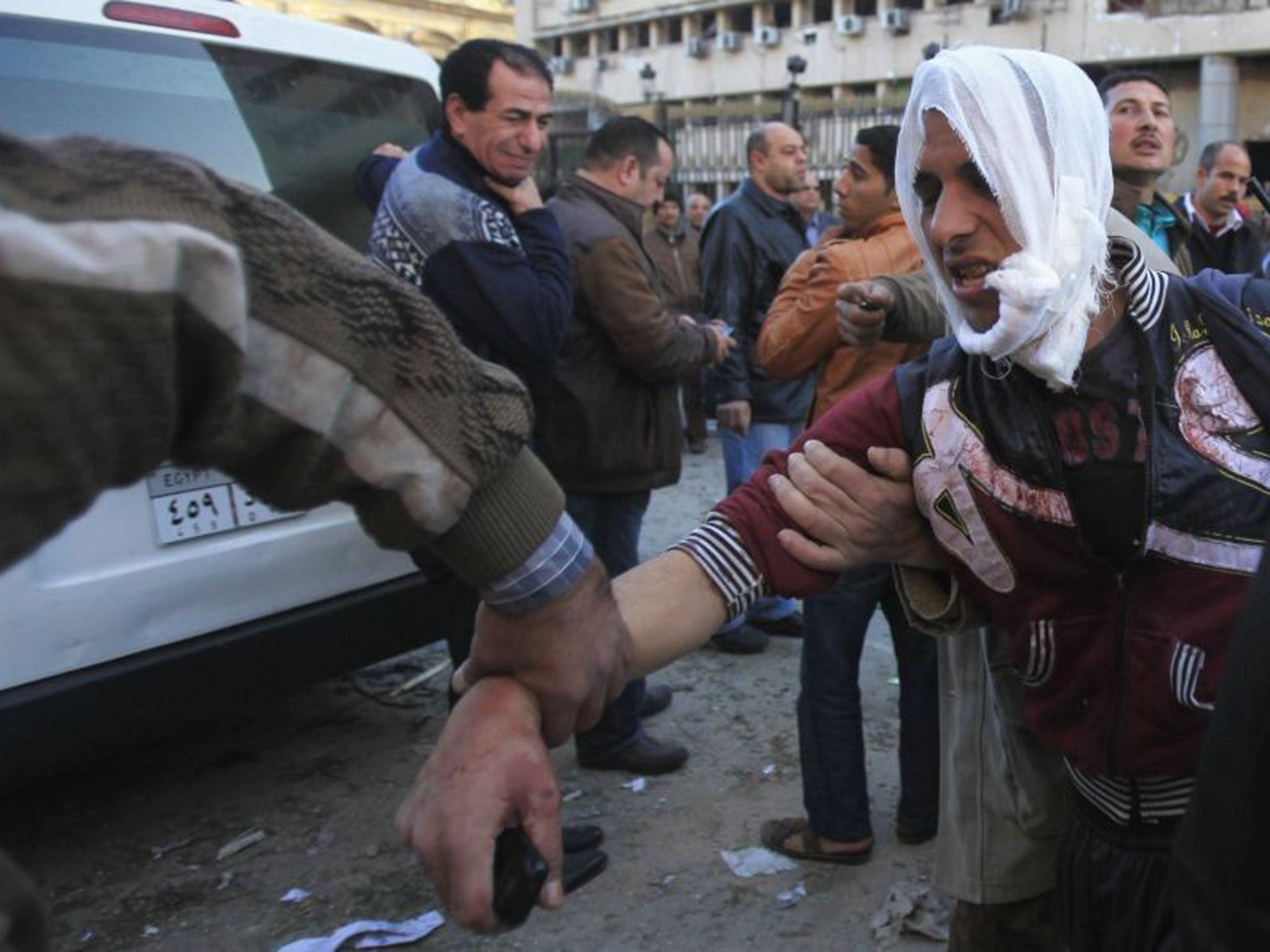Cairo bomb attacks: Four killed and dozens wounded on eve of revolution rallies in Egypt
Blasts come a day before the anniversary of the 2011 uprising that toppled Hosni Mubarak

Your support helps us to tell the story
From reproductive rights to climate change to Big Tech, The Independent is on the ground when the story is developing. Whether it's investigating the financials of Elon Musk's pro-Trump PAC or producing our latest documentary, 'The A Word', which shines a light on the American women fighting for reproductive rights, we know how important it is to parse out the facts from the messaging.
At such a critical moment in US history, we need reporters on the ground. Your donation allows us to keep sending journalists to speak to both sides of the story.
The Independent is trusted by Americans across the entire political spectrum. And unlike many other quality news outlets, we choose not to lock Americans out of our reporting and analysis with paywalls. We believe quality journalism should be available to everyone, paid for by those who can afford it.
Your support makes all the difference.Egyptians are bracing themselves for civil unrest tonight after Cairo was shaken by a series of explosions on the eve of third anniversary of the Tahrir Square uprising.
A suspected suicide bomber detonated a truck bomb outside the headquarters of Egypt’s security directorate, killing four people – including three policeman – and wounding dozens of others.
The bombing at around 6.30am was the first such successful attack in central Cairo since the popular coup which toppled Mohamed Morsi last summer. Hours later two smaller devices were detonated. One exploded outside a metro station in the west of the capital, killing a policeman and wounding nine others, according to Egypt’s Interior Ministry. The other, near a police station close to the Pyramids, caused no casualties. A fourth blast near a cinema killed one person.
Interior Minister Mohammed Ibrahim called the bombings a “vile terrorist act”.
In the afternoon clashes broke out between Mr Morsi’s supporters and the security services. There was further unrest elsewhere across Egypt, with at least three people killed during street battles.

With rallies planned today marking Egypt’s 2011 uprising, there are fears that the country could be on the verge of renewed violence.
This morning, hundreds of civilians gathered at the site of the first blast, many holding pictures of General Abdel Fattah al-Sisi, the army chief expected to run for the presidency. Some chanted: “The people want the execution of the Muslim Brotherhood.” One street-hawker sold posters of General Sisi dressed as a blood-stained butcher, his large carving knife poised delicately above a sheep with the head of Mohamed Morsi.
Following a referendum on the country’s new constitution earlier this month, the government has tried to portray Egypt as a country getting back on its feet. Yet the state has resorted to increasingly authoritarian behaviour. Leading secular activists have been detained and jailed, politicians have been charged with insulting the judiciary and journalists arrested and accused of being involved in terrorist activity.

Many Egyptians, exhausted by the constant strife, appear willing to cede their government greater powers. But others are anxious.
“There is a widespread depression among all of those who believed in the revolution,” said Egyptian journalist Heba Afify. “This is not where we expected to be after three years.”
Join our commenting forum
Join thought-provoking conversations, follow other Independent readers and see their replies
Comments